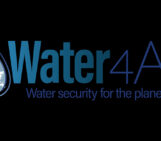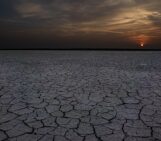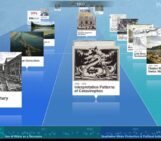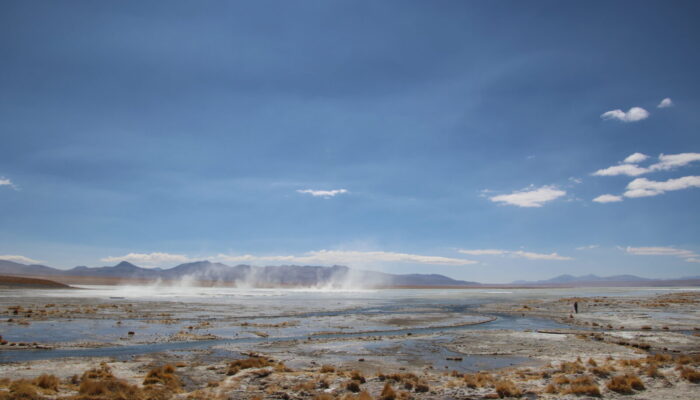
Walking the halls of the EGU General Assembly 2025 a few weeks ago, I was full of child-like curiosity. Being surrounded by people doing fascinating, creative, and innovative research felt like a dream come true. New faces every day, big talks on small advances and complicated methodologies. I learned about mountain ecology and failing snow-models, and I was captured by graphs and animations – as well as by the people explaining them to me. I was elated at first.
Yet after each coffee break, I felt like this beehive of busy researchers split itself into separate houses. The modellers crowding the modelling session, biologists gathering around the ecohydrology posters. Meanwhile, I was rushing from one poster hall to the next, sneaking into sessions only for one particular talk, before dashing down to the posterhall X5 for a poster just before lunch. I started wondering what I was doing here.
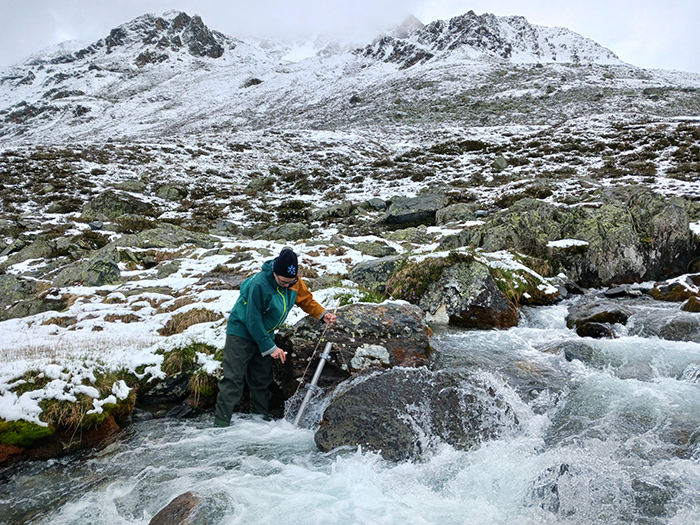
Credit: Amber van Hamel
Despite skimming session descriptions for keywords such as “river”, “water”, “temperature” and “extremes”, I felt like I was missing studies relevant to my research on river water temperature extremes. Was I looking for the wrong thing? Or was I doing research on something no one else was interested in?
Not to say that I did not hear interesting talks or had thought-provoking discussions – I did. But the effort it took me to single out people who would be interested in discussing my research seemed to become a larger obstacle every day. It was like trying to make friends in a new city, when everyone already has their group. As a young scientist, I was looking for ‘my’ people.
Maybe this longing for a group is a weird desire for someone who became a scientist partly because I enjoy working independently, a trait not uncommon among researchers. But at a conference, I want to have discussions. I want to question and to be questioned, and become more critical of, and better, at my own work. I want to learn from others – and ideally be able to contribute something in return. I want community.
What does a community do? What is it for? Couldn’t we all do our supercool research without it? In a way, yes. But community means strength. It makes things possible that wouldn’t be feasible alone. It fuels our creativity. It is the coffee break comment on your measurement setup that will save you from losing half of your data. It is the question after a talk that opens a new direction to a stuck PhD. It is a hint to check out an article that explains a new method. Community is bringing together the experience of the old and the enthusiasm of the young.

Credit: Sasha Löffler
I dream of a water temperature community that brings together experts on lake, river, and groundwater temperature. A place to get in touch with water quality researchers and power plant managers who observe extreme water temperatures, as well as ecologists and fisheries concerned by the rising frequency of heat-induced fish die-offs. Rather than focusing on individual components, we should consider water temperature in the context of the entire hydrological system. We need a community to see the bigger picture. The strength of research is that while one person cannot do it all at once, a community can.
So how do we go forward? Does every niche need their own session at the EGU General Assembly? Probably not. I see the value in listening to a wide range of different studies. I see how we advance faster in science if we learn from different fields and groups and apply transferable methods and approaches, making us more versatile and more creative in the process. But building a community means creating a little home, known faces to return to every year, a place where to relax during a conference. And having a home base means more time to chat, to learn, and to question. A community means support for all of us.
Next year, my group and I are planning to set up a session entitled “Water Temperatures: from Rivers to Groundwater” and I invite anyone who has ever been looking for their water temperature people to join us.

Credit: Maria Grundmann
edited by B. Schaefli

